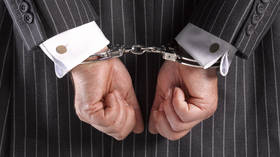US considers using anti-mafia law in stock trading probes – media

US prosecutors may use the Racketeer Influenced and Corrupt Organizations Act (RICO) in investigations into hedge funds and firms that are linked to short-selling, Reuters reported, citing sources familiar with the matter.
Short-sellers are traders that bet a certain stock’s price will drop, usually by publishing negative reports on the stock in question. This is done to artificially lower the stock’s price, so it can be sold and then bought at a lower cost in order to pocket the difference. The activity is a widely used stock-trading move, however, it becomes illegal if a short seller is found to have spread false information in an effort to drive down a stock’s price. The US Justice Department last year issued subpoenas to numerous firms that were linked to short-selling in a push to combat potentially manipulative trading actions.
According to a Reuters report published on Saturday, the firms in question could now face charges under the 1970s anti-racketeering law. Prosecutors on the cases are investigating the relationships between the short-sellers who published negative stock reports and investors who may have profited from them, as well as whether the stock actions probed were coordinated steps taken by a “criminal enterprise.”
RICO has historically been used in cases linked to bribery, money laundering and drug trafficking by organized criminal groups such as the mafia. It is rarely used to combat financial crimes, however, some precedent exists.
In the most recent case, prosecutors charged JPMorgan Chase executives with racketeering for manipulating prices of precious metals in 2019.
The Justice Department in Washington and the US attorney’s office in Los Angeles are involved in the short-selling probes, according to the sources, but they declined to comment on the report when contacted by Reuters.
For more stories on economy & finance visit RT's business section













